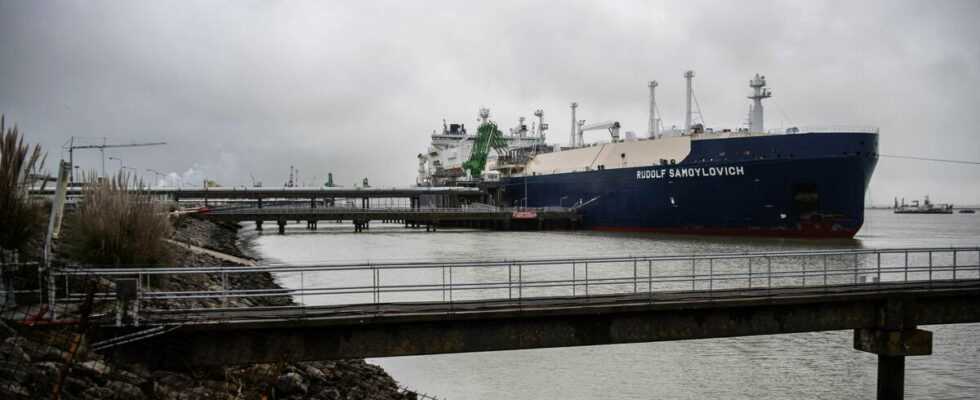The banishment of Russia internationally has not prevented it from massively exporting its fossil fuels, particularly to Germany and Italy. Significant revenues which hide, for the moment, Russia’s difficulties in making up for the still limited drop in European imports.
Despite the war in Ukraine and international sanctions, Russian gas and oil are still popular. Since the beginning of the February 24 invasion, Russia has exported the equivalent of 63 billion euros worth of fossil fuels, estimates the Center for Research on Energy and Clean Air (CREA) in a study published this week. April 28. A real financial windfall for Vladimir Putin’s regime and the Russian economy, weakened by major economic sanctions. “Everyone who buys these fossil fuels is complicit in the horrific violations of international law committed by the Russian military”, warns Lauri Myllyvirta, analyst at CREA. First client of its neighbour, the European Union indirectly finances the Russian war machine. In two months, the EU bought 44 billion euros worth of fossil fuels, or 71% of Russia’s energy revenues. While in 2021, “imports of fossil fuels over the same period amounted to 18 billion”, says the analyst. An increase due to soaring energy prices.
Since the beginning of the war, the biggest importers of Russian fuels have been Germany and Italy, the two countries having paid 9.1 and 6.9 billion euros respectively for these raw materials. China, the Netherlands and Turkey follow. France still comes in sixth position with nearly 3.8 billion euros. The elite of oil companies continues, too, its purchases. Exxon Mobil, Shell, BP, Total and even Repsol – a non-exhaustive list – have been identified by the CREA among the buyers of Russian fossil fuels in recent months.
Coal embargo in August
Gas, oil, coal… Too dependent, the European Union is trying to get rid of its addiction to its neighbour’s raw materials. At the beginning of April, the representatives of the Twenty-Seven agreed to ban imports of Russian coal by August. In the coming days, the European Commission could vote for a similar embargo on petroleum products. Although these sanctions are not yet effective, European coal imports nevertheless fell by 40% in early April compared to the January-February period. Crude oil, on the other hand, fell by 20%. “Europe has been so dominant as a buyer of fossil fuels from Russia that even the ongoing cuts haven’t changed much of the situation”tempers the analyst.
If for Russia, it is a real shortfall, it also becomes a production surplus. During March and April, many ships left Russian ports, loaded with oil and gas, without knowing their destination. Without Europe, Russia is struggling to find takers. India, South Korea, Egypt and other destinations “unusual” finally opened their ports to Russian tankers and LNG carriers. New partners which in no way make it possible to compensate for the entire drop in European imports. “Possibilities to divert exports from Russia to other destinations are limited, in particular due to poor infrastructure and long transport distances”explains Lauri Myllyvirta.
Although fossil fuel revenues are the sinews of war for Russia, that did not prevent Vladimir Putin from closing his floodgates to Poland and Bulgaria, the two countries having failed to make their payments in rubles as Moscow demanded. A situation that suggests a potential embargo on Russian gas and oil. The President of the European Commission Ursula von der Leyen indeed recalled on Tuesday that any payment in ruble «counterv[enait] to penalties” imposed by the EU on Russia.
